15 Common Yakuza Tattoos And Their Meaning
Yakuza tattoos, known as irezumi, are renowned for their intricate full-body designs. They often cover an individual’s back, arms, and legs, weaving a tapestry of symbolism and art. These tattoos are typically characterized by elements from Japanese art, mythology, and folklore.
Importance of tattoos in Yakuza culture
In Yakuza culture, tattoos carry deep significance, serving as a symbol of loyalty and commitment to the organization. They also represent an individual’s courage, as the tattooing process is notoriously painful and time-consuming. Furthermore, the unique designs of Yakuza tattoos reflect the values and identity of the group, setting them apart from other factions.
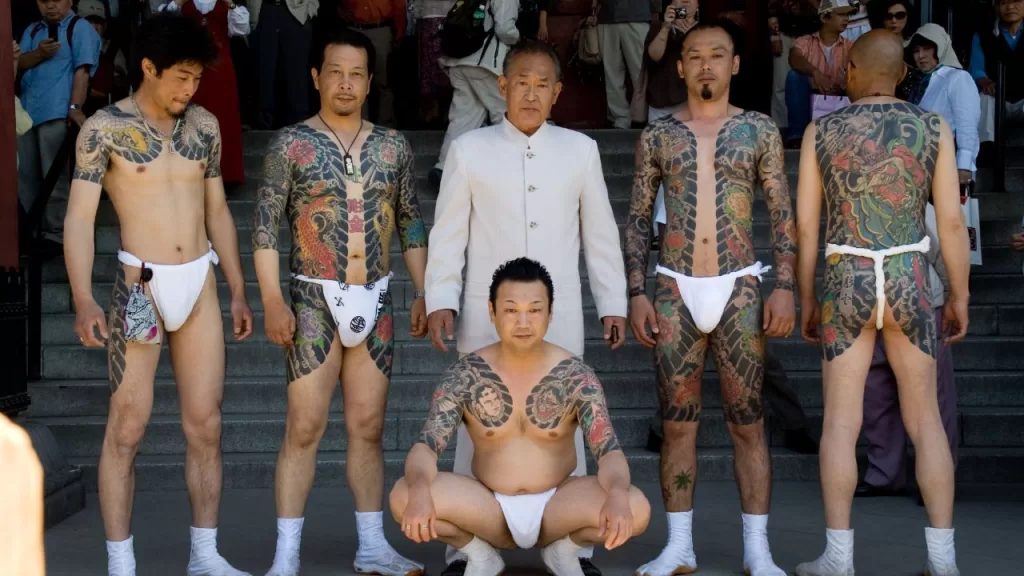
Traditional Methods of Tattooing in Japan
Traditional Japanese tattooing, or tebori, has been practiced for centuries, and it remains the preferred method for creating Yakuza tattoos. Tebori involves the use of handheld needles attached to wooden or metal handles to insert ink into the skin. This method is labor-intensive and requires a high level of skill, making the process a revered art form in Japan.
Common Yakuza Tattoo Designs and Their Meanings
🐉Dragon
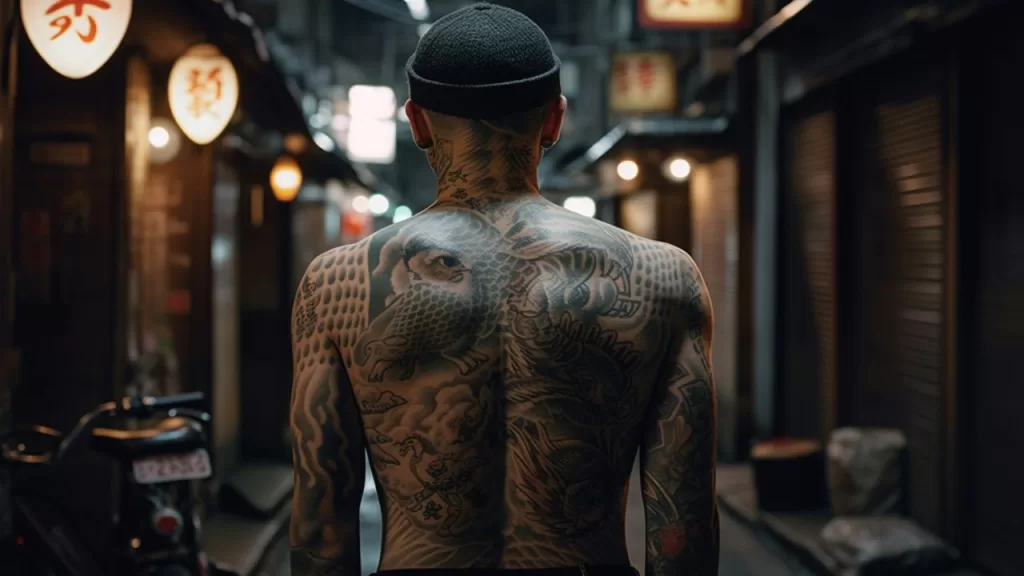
Symbol of power, wisdom, and protection
The dragon is a prominent figure in Yakuza tattoos, symbolizing power, wisdom, and protection. Often depicted with fierce expressions and sinuous bodies, dragons represent the strength and ferocity associated with Yakuza members. This majestic creature also embodies the authority and command held by high-ranking individuals within the organization.
Connection to Japanese mythology and folklore
Dragons have deep roots in Japanese mythology and folklore, often portrayed as benevolent deities or guardians. They are believed to possess supernatural powers and are associated with water, rain, and agriculture. The use of dragons in Yakuza tattoos showcases the group’s connection to Japanese cultural heritage.
Association with Yakuza hierarchy and strength
Furthermore, the dragon’s prominence in Yakuza tattoos is linked to the organization’s hierarchical structure. Just as dragons are seen as powerful entities in mythology, Yakuza members who rise through the ranks are considered formidable figures in their own right. The dragon serves as a visual representation of the strength and dominance that Yakuza members strive to achieve.
🎏Koi fish
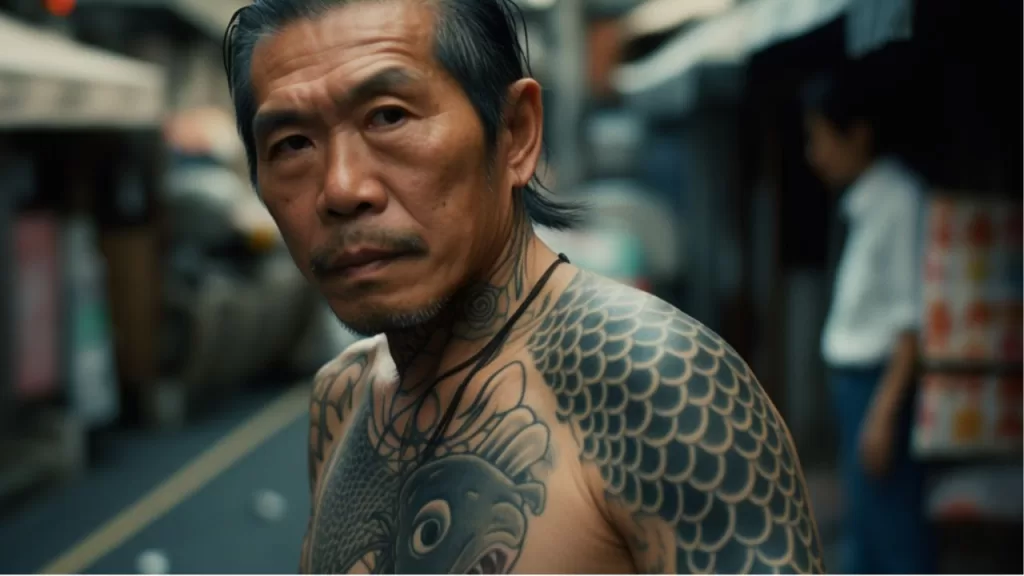
Representation of perseverance and determination
Koi fish are often featured in Yakuza tattoos as a symbol of perseverance and determination. These qualities are admired within the Yakuza culture, as they reflect the ability to endure hardships and overcome obstacles. The koi fish is said to embody these traits as it swims upstream against strong currents, demonstrating strength and resilience.
Significance in Japanese Culture
In Japanese culture, koi fish are considered auspicious, representing good fortune and prosperity. They are a common motif in traditional art, often featured in paintings, carvings, and textile designs. As a symbol of perseverance and determination, koi fish are viewed as a source of inspiration, highlighting the importance of overcoming life’s challenges.
Connection to Yakuza’s Resilience and Ambition
The koi fish’s symbolism is particularly relevant to the Yakuza, as their members often face numerous challenges and difficulties in their lives. By including the koi fish in their tattoos, Yakuza members acknowledge their resilience and ambition. The koi fish serves as a reminder of the importance of pushing through adversity and striving for success, regardless of the obstacles they may encounter.
🐯Tiger

Symbol of courage, strength, and protection
The tiger is a prevalent motif in Yakuza tattoos, representing courage, strength, and protection. As one of the most powerful and respected animals in Japanese and Chinese cultures, the tiger is revered for its fierce and commanding presence. This symbolism is deeply embedded in the Yakuza’s ideals, as they value bravery and the ability to protect their own.
Association with Japanese and Chinese folklore
Tigers have been central figures in Japanese and Chinese folklore for centuries. In these stories, tigers often symbolize the balance of power and serve as guardians against evil spirits. By incorporating the tiger into their tattoos, Yakuza members pay homage to the rich cultural history and connect their own identities to these powerful mythical creatures.
Reflection of Yakuza’s fearlessness and power
The Yakuza’s choice to incorporate the tiger into their tattoos reflects their fearlessness and power. As a group that operates outside the law, the Yakuza must assert dominance and strength to maintain their influence. The tiger serves as a constant reminder of the group’s resilience and willingness to face challenges head-on.
🐦Phoenix
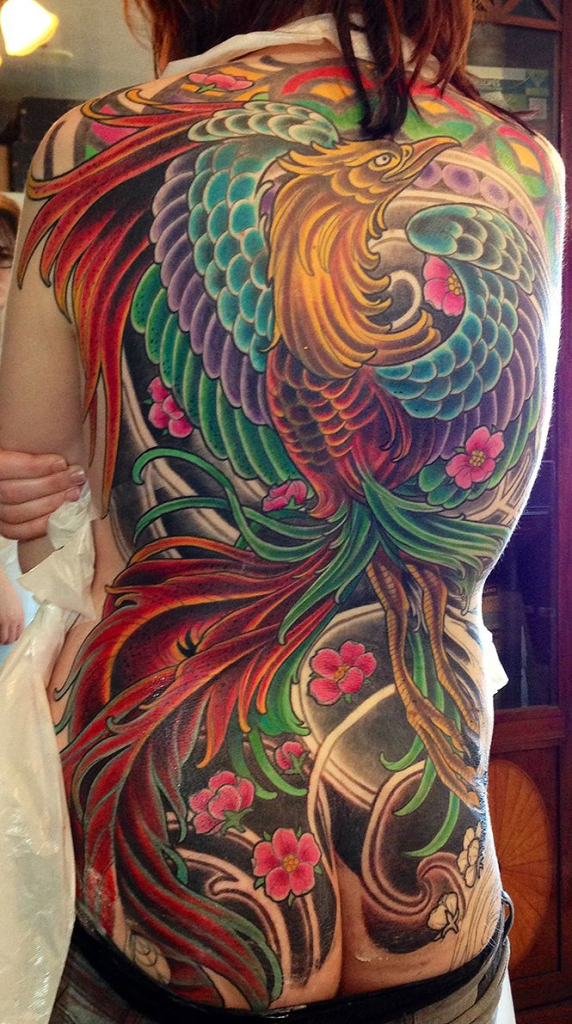
Representation of rebirth, transformation, and immortality
The phoenix is a powerful symbol in Yakuza tattoos, representing rebirth, transformation, and immortality. As a creature that rises from its own ashes, the phoenix embodies the idea of overcoming adversity and emerging stronger. This symbolism is particularly resonant within the Yakuza, who are known for their ability to adapt and survive in challenging circumstances.
Significance in Japanese mythology
In Japanese mythology, the phoenix, or “hou-ou,” holds great significance as a symbol of virtue, grace, and the power of renewal. Often depicted with vibrant plumage and an aura of fire, the phoenix is considered a divine creature that brings blessings and good fortune. This connection to Japanese mythology further reinforces the symbolism of the phoenix in Yakuza tattoos.
Connection to Yakuza’s ability to adapt and survive
For the Yakuza, the phoenix tattoo serves as a reminder of the organization’s resilience and unwavering spirit. It signifies the group’s capacity to rise above obstacles and maintain a strong presence in the face of adversity. In this way, the phoenix tattoo not only connects the Yakuza to the rich tapestry of Japanese mythology but also embodies the key attributes that define the group’s identity.
🌸Cherry blossoms

Symbol of beauty, life, and transience
Cherry blossoms, or sakura, hold a special place in Japanese symbolism, representing beauty, life, and transience. The fleeting nature of these delicate blossoms serves as a reminder of the impermanence of life. As such, they are often featured in Yakuza tattoos to express the ephemeral nature of human existence.
Importance in Japanese Culture and Art
In Japan, cherry blossoms are celebrated annually during hanami, a tradition of appreciating their beauty while they bloom. They have long been a central theme in Japanese art, literature, and poetry, symbolizing both the beauty and the fleeting nature of life. This cultural significance has made cherry blossoms a popular motif in Yakuza tattoos, connecting the wearer to Japanese heritage and artistic traditions.
Reflection of Yakuza’s appreciation for life’s fleeting nature
Yakuza members often face dangerous situations and live high-risk lifestyles. By incorporating cherry blossoms into their tattoos, they acknowledge the transient nature of life and their own mortality. This choice of symbolism reflects the Yakuza’s appreciation for the fleeting beauty of life, as well as their understanding of the ever-present possibility of death.
😈Oni (demon)

Representation of evil, fear, and protection from evil
The Oni, a malevolent creature often depicted with sharp horns and a fierce expression, is a powerful symbol in Japanese culture. It represents evil, fear, and the darker side of human nature. However, the Oni also serves as a guardian against evil forces, symbolizing protection and strength.
Association with Japanese folklore and religious beliefs
Oni features prominently in Japanese folklore, particularly in tales that explore the concepts of good and evil. They are often considered embodiments of wickedness, temptation, and punishment. In Japanese religious beliefs, particularly in Buddhism, Oni is seen as supernatural beings that protect temples and sacred places from malevolent forces.
Connection to Yakuza’s Role as Protectors and Enforcers
The Yakuza’s adoption of the Oni as a tattoo symbol reflects their complex and dual nature. On one hand, they are involved in criminal activities and are perceived as a force of evil. On the other hand, they often serve as protectors and enforcers within their communities. The Oni tattoo captures this duality, signifying the Yakuza’s capacity for both malice and guardianship.
🥷Samurai

Symbol of honor, loyalty, and bravery
The samurai tattoo is a powerful symbol, embodying the virtues of honor, loyalty, and bravery. These qualities, deeply ingrained in the samurai way of life, known as Bushido, reflect the warrior spirit and the dedication to a higher purpose. As such, samurai tattoos serve as a reminder of the importance of living by a code of ethics and striving for greatness.
Significance in Japanese History and Culture
Samurai warriors have played a pivotal role in Japanese history and culture, shaping the nation’s destiny over centuries. They were the elite military class entrusted with the responsibility of defending their lords and territories. Samurai tattoos pay homage to this rich heritage, preserving the legacy of these revered warriors in intricate designs and symbolism.
Reflection of Yakuza’s adherence to a strict code of conduct
Yakuza members, much like the samurai, adhere to a strict code of conduct known as the ninkyo dantai, which emphasizes loyalty, honor, and duty. By choosing a samurai tattoo, Yakuza members demonstrate their commitment to these values, drawing inspiration from the samurai’s unwavering dedication to their principles. The tattoo serves as a constant reminder of the importance of living by a code and striving for excellence in all aspects of life.
🎎Geisha

Representation of beauty, art, and entertainment
Geisha tattoos depict the traditional Japanese female entertainers known for their elegance and artistic skills. These designs symbolize beauty, art, and entertainment, as geishas are well-versed in various forms of performing arts, such as music, dance, and tea ceremonies. Geisha tattoos often feature intricate details and vibrant colors, capturing the essence of these revered figures.
Importance in Japanese Culture and History
Geishas have played a significant role in Japanese culture and history, dating back to the Edo period (1603-1868). They were an integral part of high society, entertaining and accompanying the elite at social events. By getting a geisha tattoo, Yakuza members pay homage to this rich cultural heritage and display their appreciation for the artistry and sophistication of geishas.
Connection to Yakuza’s involvement in the entertainment industry
The Yakuza’s ties to the entertainment industry make geisha tattoos especially relevant. Yakuza members often act as intermediaries and patrons within the world of entertainment, supporting and funding various activities. By donning a geisha tattoo, a Yakuza member signifies their connection to this sector, as well as their commitment to upholding the traditions and values associated with geishas.
🐕Foo dog

Symbol of protection, courage, and power
Foo dogs, also known as guardian lions, are iconic symbols of protection, courage, and power. These mythical creatures have a long history in Asian culture, particularly in China and Japan. They are often depicted with fierce expressions and imposing stances, embodying strength and fearlessness.
Association with Chinese and Japanese mythology
The foo dog’s origins can be traced back to Chinese mythology, where they were believed to protect sacred spaces and ward off evil spirits. These guardian figures were later introduced to Japan, where they became an integral part of Japanese art and architecture. In Japan, foo dogs are commonly found guarding the entrances of temples, shrines, and other important structures.
Reflection of Yakuza’s Role as Guardians and Enforcers
For the Yakuza, the foo dog tattoo represents their role as guardians and enforcers within the organization. The protective symbolism of the foo dog aligns with the Yakuza’s duty to maintain order and ensure the well-being of its members. Additionally, the power and courage associated with the foo dog mirror the Yakuza’s fearless nature and their commitment to upholding the group’s values and principles.
👺Hannya mask

Representation of jealousy, hatred, and rage
Hannya masks portray a tormented female demon, embodying jealousy, hatred, and rage. They often feature a sinister, contorted expression with sharp horns and bulging eyes. These masks represent the intense emotions that can consume a person, transforming them into demon-like figures.
Significance in Japanese Noh Theater and Culture
The Hannya mask has deep roots in Japanese Noh theater, where it has been used to represent vengeful female spirits. Performers utilize these masks to depict complex emotions and convey the tragic nature of the characters they portray. As a result, the Hannya mask has become a powerful symbol of anguish and torment in Japanese culture.
Connection to Yakuza’s darker emotions and actions
In the context of Yakuza tattoos, the Hannya mask serves as a reminder of the darker emotions that drive some of their actions. By incorporating this symbol into their tattoos, Yakuza members acknowledge the complex nature of their motivations and the potential for violence and revenge. The mask also acts as a warning to others, showcasing the Yakuza’s capability to unleash their darker side when necessary.
🐍Snake

Symbol of transformation, wisdom, and healing
In Japanese tattoo culture, snakes represent transformation, wisdom, and healing. These slithering creatures have a long history of symbolism in various cultures, often associated with rebirth and renewal due to their ability to shed their skin. The snake’s wisdom and connection to healing also stem from its association with medicine, as seen in the Caduceus symbol.
Association with Japanese and global folklore
The snake is a prominent figure in Japanese and global folklore. In Japanese mythology, the Yamata no Orochi is a giant eight-headed and eight-tailed serpent that was defeated by the storm god Susanoo. In other cultures, such as ancient Greece and Hinduism, snakes play a vital role in their respective mythologies, further solidifying their importance in the world of symbolism.
Reflection of Yakuza’s adaptability and knowledge
The snake’s symbolism resonates with Yakuza culture, as it reflects their adaptability and knowledge. Yakuza members are known for their ability to navigate the criminal underworld and adapt to changing circumstances. Additionally, the snake’s wisdom and healing aspects signify the Yakuza’s capacity to recover from setbacks and maintain a strong presence in their domain.
🀥Chrysanthemum

Representation of elegance, longevity, and nobility
Chrysanthemums are revered in Japanese culture for their elegance, longevity, and noble symbolism. Often referred to as the “king of flowers,” they embody grace and refinement. Additionally, their ability to withstand harsh conditions has made them a symbol of endurance and longevity.
Importance in Japanese culture and Imperial family
The chrysanthemum has a long-standing history in Japan, and it is closely associated with the Imperial family. The Imperial Seal of Japan features a chrysanthemum with 16 petals, symbolizing the emperor’s authority and status. This connection to royalty has made the chrysanthemum a symbol of nobility in Japanese culture.
Connection to Yakuza’s desire for power and prestige
Yakuza members often use chrysanthemum tattoos to showcase their ambitions for power and prestige. By incorporating this symbol into their body art, they align themselves with the nobility and strength associated with the flower. In doing so, the Yakuza not only pays homage to traditional Japanese culture but also asserts their own aspirations for dominance and influence.
🪷Bodhisattva

Representation of compassion, enlightenment, and selflessness
The Bodhisattva is a revered figure in Buddhism, embodying the virtues of compassion, enlightenment, and selflessness. In the context of Yakuza tattoos, this design represents the group’s ability to find a balance between their criminal activities and a deeper spiritual purpose. It highlights the potential for personal growth and spiritual development even in the darkest circumstances.
Importance in Japanese Buddhism
In Japanese Buddhism, the Bodhisattva symbolizes a being who has reached a high level of spiritual understanding and enlightenment but chooses to remain in the human realm to help others achieve the same. This concept has significant cultural and religious importance in Japan. It is a reminder of the ultimate goal of attaining spiritual awakening and serving others.
Connection to Yakuza’s spiritual side and pursuit of enlightenment
Despite their criminal activities, many Yakuza members are known to practice Buddhism and seek spiritual enlightenment. By incorporating the Bodhisattva into their tattoo designs, they acknowledge their dual nature and the potential for redemption. It serves as a reminder of their commitment to personal growth, spiritual development, and the pursuit of a higher purpose beyond their life of crime.
🌷Peony
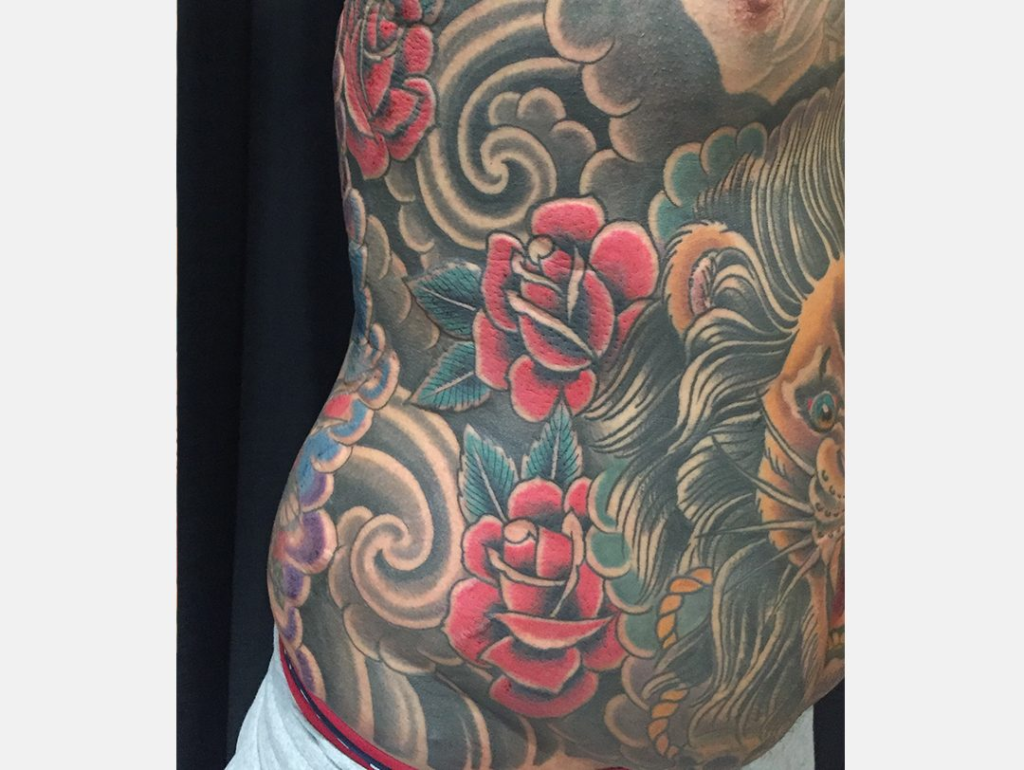
Symbol of beauty, elegance, and prosperity
The peony, often referred to as the “king of flowers,” is a popular tattoo design in Yakuza culture due to its symbolism of beauty, elegance, and prosperity. With its lush petals and vibrant colors, the peony represents a life of luxury and refinement.
Association with Chinese and Japanese culture
Peonies have a long history in both Chinese and Japanese cultures, where they are admired for their beauty and believed to bring good fortune. In Japan, they are also associated with samurai, as the warriors admired the flower’s bold and graceful nature. This connection to warrior culture further solidifies the peony’s relevance within Yakuza tattoo designs.
Reflection of Yakuza’s desire for success and wealth
In Yakuza culture, the peony symbolizes the group’s desire for success and wealth. As a criminal organization, the Yakuza are known for their pursuit of power and financial gains. By incorporating the peony into their tattoos, members proudly display their ambitions and aspirations for a life of prosperity and luxury.
🐙Octopus

Representation of intelligence, adaptability, and mystery
The octopus, as a tattoo design, symbolizes intelligence, adaptability, and mystery. The creature’s ability to change colors, camouflage, and outsmart predators speaks to its intellect and resourcefulness. These qualities make it a fitting emblem for Yakuza members, who are often known for their cunning and strategic thinking.
Connection to Japanese Folklore and Symbolism
The octopus has a deep connection to Japanese folklore and symbolism. It appears in various stories and legends, including the famous tale of the Tako-no-Kami, a mythical octopus deity who was believed to protect fishermen and grant them bountiful catches. Its presence in Japanese culture adds an element of cultural significance to the tattoo design.
Reflection of Yakuza’s cunning nature and ability to navigate complex situations
The octopus tattoo is a reflection of the Yakuza’s cunning nature and ability to navigate complex situations. Just as the octopus can skillfully maneuver through its environment and escape danger, Yakuza members must be adaptable and resourceful to succeed in their criminal enterprises. This tattoo design serves as a reminder of the qualities necessary for survival in the dangerous world of organized crime.
In-depth Analysis of Tattoo Meanings
Exploration of the cultural significance of each design
Historical Context and Origins
Yakuza tattoos draw from a rich history of Japanese art, mythology, and folklore. Their origins can be traced back to the Edo period when tattoos began as a form of punishment. Over time, the art form evolved into a symbol of defiance, rebellion, and, eventually, status within the Yakuza.
Connection to Japanese art, literature, and religion
The designs found in Yakuza tattoos are deeply rooted in Japanese art and culture. They often reference traditional ukiyo-e woodblock prints, folklore, and religious iconography. This connection to Japan’s cultural heritage imbues Yakuza tattoos with a profound depth and meaning that transcends their surface appearance.
Relationship between tattoo designs and Yakuza values
How each design embodies Yakuza’s beliefs and code of conduct
Each Yakuza tattoo design is carefully chosen to represent the individual’s values and beliefs, mirroring the code of conduct within the organization. For example, the dragon symbolizes power and wisdom, reflecting the Yakuza’s pursuit of influence and knowledge, while the koi fish represents resilience and determination, traits highly regarded by the Yakuza.
Influence of Japanese Culture on Yakuza’s Identity and Self-image
Japanese culture has a profound impact on the Yakuza’s identity and self-image. The tattoo designs they choose are not only a representation of their values but also a connection to their cultural heritage. By adorning their bodies with these traditional designs, Yakuza members pay homage to their roots and embrace their place within the broader Japanese society.
Evolution of tattoo designs and their meanings over time
Adaptation of traditional designs to modern contexts
As the Yakuza and Japanese society have evolved over time, so too have the meanings and interpretations of their tattoos. Traditional designs are now often adapted to reflect modern values, beliefs, and aesthetics. These contemporary adaptations can be seen in the fusion of traditional imagery with modern elements, creating a unique blend of old and new.
Development of new designs and their significance in Yakuza culture
New tattoo designs have also emerged over time, reflecting the changing face of the Yakuza and Japanese society. These designs often incorporate contemporary symbols, patterns, and themes while still retaining a connection to the traditional roots of irezumi. The ongoing evolution of tattoo designs within the Yakuza world serves as a testament to the dynamic nature of this subculture and its enduring relevance.
Final Thoughts
Importance of tattoos in Yakuza culture and identity
Tattoos are an essential aspect of Yakuza culture and identity, symbolizing loyalty, courage, and adherence to the group’s values. They also serve as a visual representation of the Yakuza’s connection to their Japanese heritage, reflecting the group’s roots in traditional art, folklore, and mythology.
Interplay between Japanese culture and Yakuza tattoo symbolism
The symbolism found in Yakuza tattoos is deeply intertwined with Japanese culture. This interplay reveals a shared history and set of values, demonstrating the Yakuza’s place within the broader Japanese society. The tattoos also showcase the organization’s ability to adapt and evolve over time, embracing modernity while maintaining a connection to its cultural roots.
Enduring significance of tattoo designs and their meanings in the Yakuza world
The meanings behind Yakuza tattoos have endured over time, reflecting the group’s values, beliefs, and cultural heritage. The designs have evolved and adapted to the changing world, yet their core significance remains.
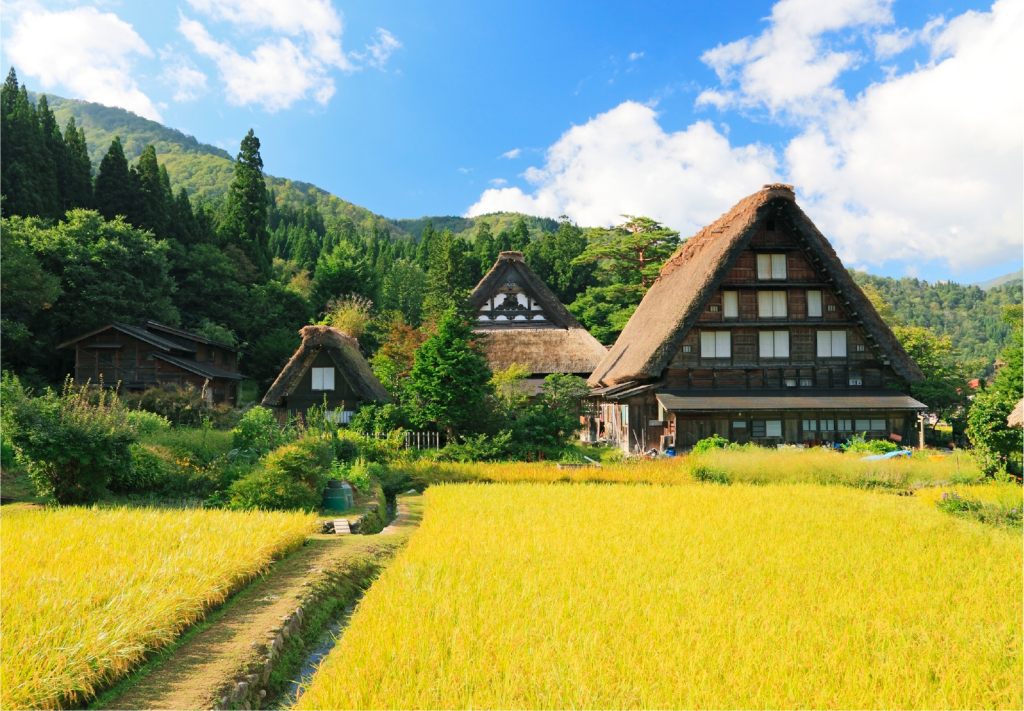
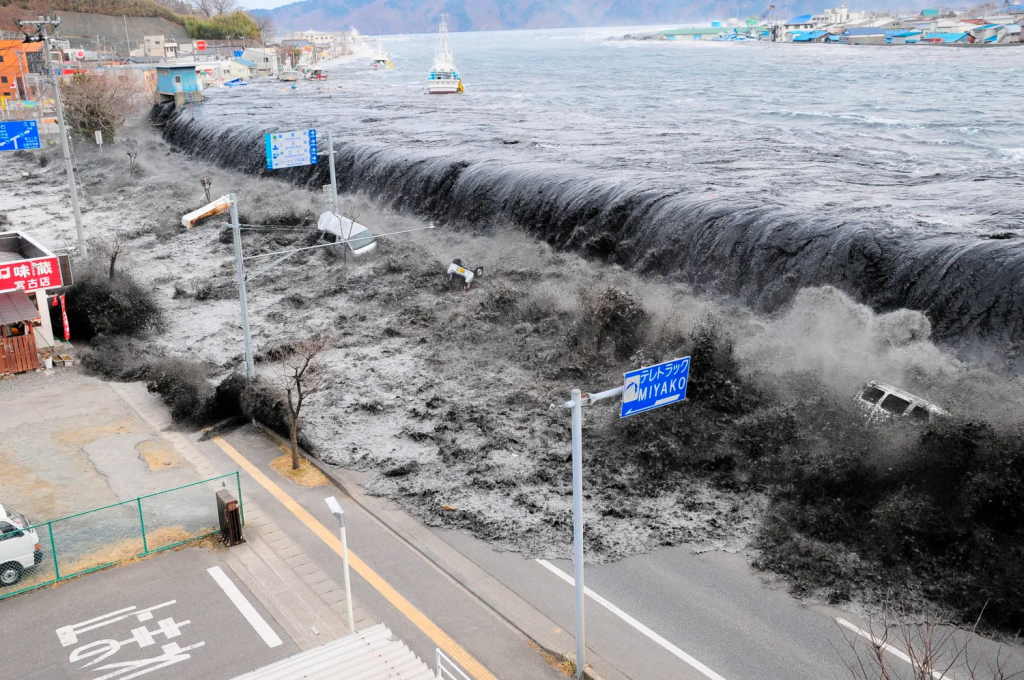
Written good as I have cherry 🍒 blossoms 🌸 and chrysanthemums over my upper body and more said art on my legs.🙂